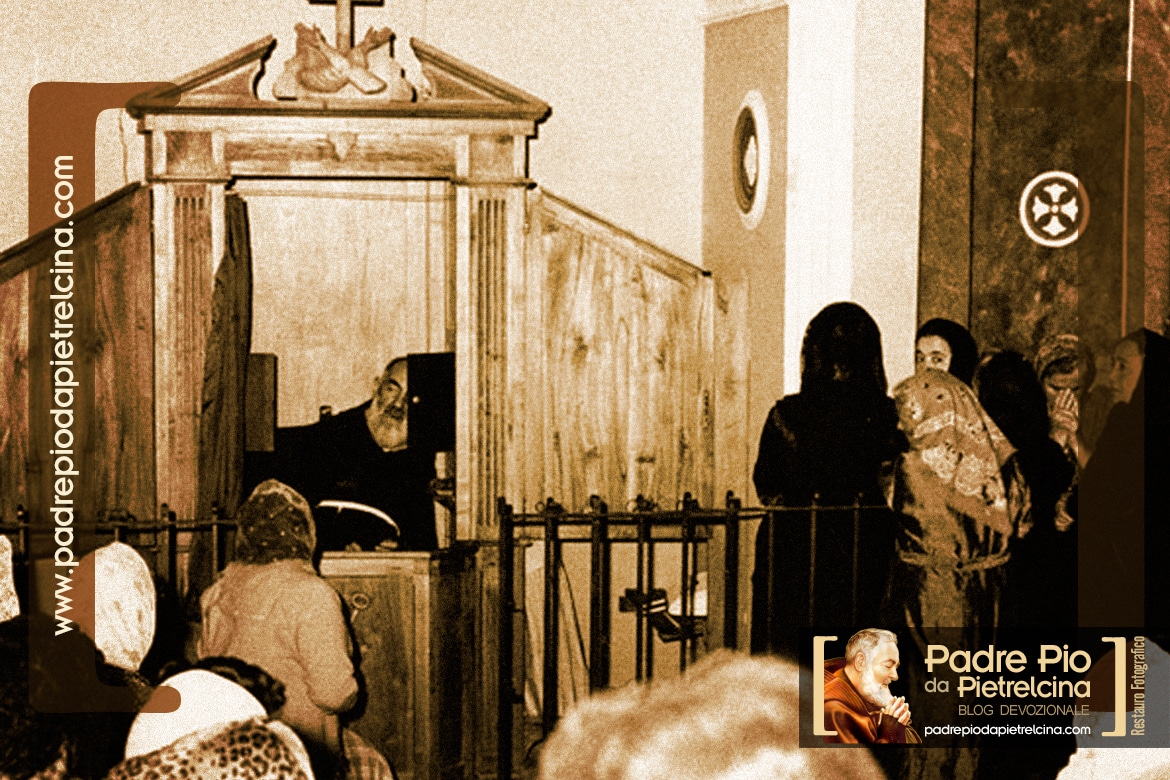Padre Pio’s confessions were not just acts of forgiveness. They were moments of true salvation. With tireless dedication and a fatherly love, the saint, who could read the hearts of penitents, guided them toward the light of Christ, freeing them from the shadows of sin and the temptations of Satan. Every confession with Padre Pio was an encounter with Divine Grace.
Padre Pio: The Confessor who Reconciled Souls with God
Padre Pio’s confessions were unique experiences that liberated souls from the weight of sin and from the ties to Satan, leading them toward the light of Christ. For him, the confessional was the heart of his mission. It was a sacred place where he carried out his ministry with unwavering dedication and a rare spiritual depth. His role was not just about purification; it was an act of supreme love, a work of charity that went beyond the mere forgiveness of sins. To save a soul, for Padre Pio, meant to pull it from the darkness of sin and restore it to divine grace. His approach to penitents, as he wrote to Father Agostino, was full of pastoral and fatherly love.

Padre Pio and the Merciful Heart of Christ
He welcomed each penitent with gentleness, but never without the firmness needed to guide them on the path of salvation. His words penetrated hearts, uncovering hypocrisy and superficiality, while offering comfort and hope to those who approached him sincerely. He was known for his extraordinary ability to discern. If a penitent was insincere, he would not hesitate to reprimand them. But if he sensed true sincerity and a genuine desire for change, his kindness and understanding were unmatched. The extraordinary effectiveness of his ministry stemmed from his deep union with Christ. As he himself said: “It is not I, but He who is in me and above me.” It was Christ acting through him, and this awareness allowed him to show a profound mercy, capable of healing spiritual wounds with the power of divine grace. For Padre Pio, confession not only purified but also rebuilt the new man, renewed by grace.
Padre Pio, Guide and Comfort for Lost Souls
Penitents who came to him often left the confessional deeply moved by his words and penetrating gaze. It was not unusual for them to retreat to a quiet corner to pray and reflect, feeling reconciled with God. This inner peace came not only from the forgiveness they had received but also from the sense of having been embraced and loved unconditionally. Despite his extraordinary mission, Padre Pio always saw himself as an unworthy sinner. This humility made him even closer to the faithful, who viewed him as a living example of divine mercy. In him, the faithful found not just a confessor but a spiritual father who lovingly guided them toward salvation.






